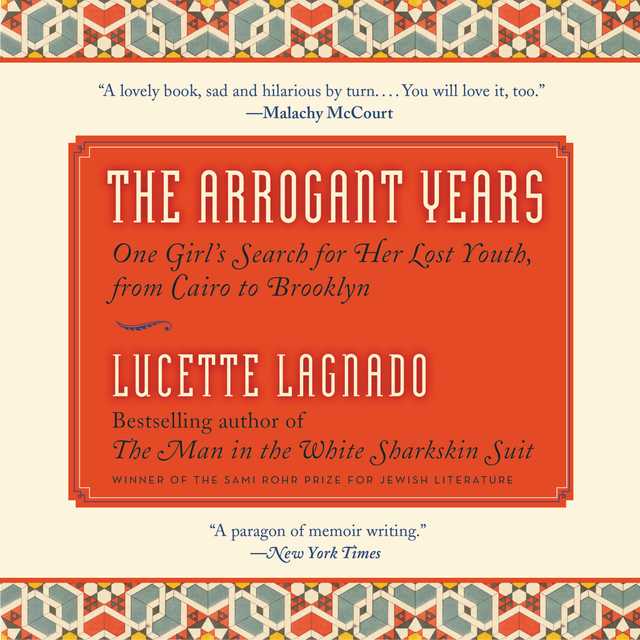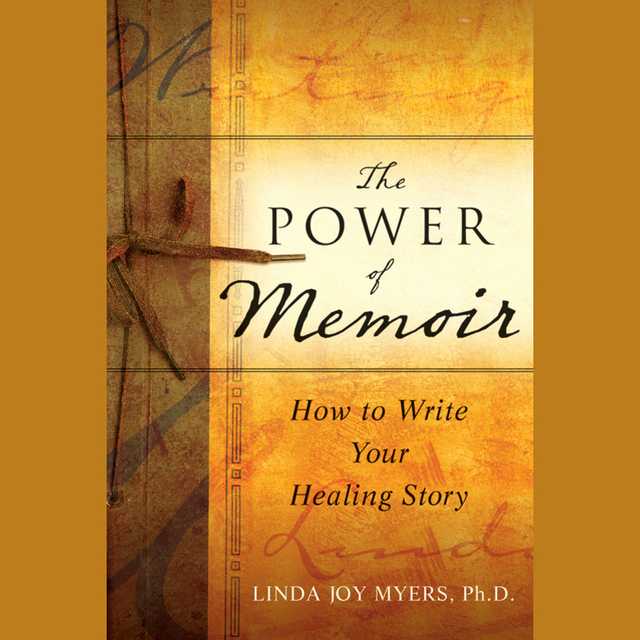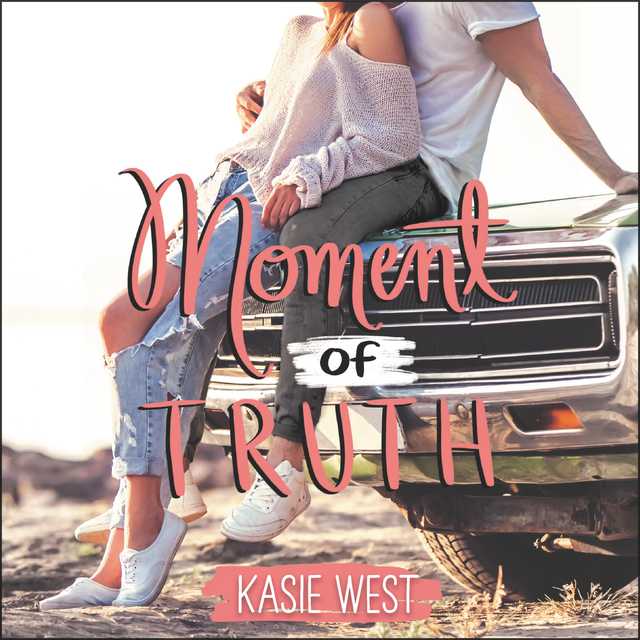The Arrogant Years Audiobook Summary
“[Lagnado writes] in crystalline yet melodious prose.”
—New York Times
Lucette Lagnado’s acclaimed, award-winning The Man in the White Sharkskin Suit (“[a] crushing, brilliant book” —New York Times Book Review) told the powerfully moving story of her Jewish family’s exile from Egypt. In her extraordinary follow-up memoir, The Arrogant Years, Lagnado revisits her first years in America, and describes a difficult coming-of-age tragically interrupted by a bout with cancer at age 16. At once a poignant mother and daughter story and a magnificent snapshot of the turbulent ’60s and ’70s, The Arrogant Years is a stunning work of memory and resilience that ranges from Cairo to Brooklyn and beyond–the unforgettable true story of a remarkable young woman’s determination to push past the boundaries of her life and make her way in the wider world.
Other Top Audiobooks
The Arrogant Years Audiobook Narrator
Joyce Bean is the narrator of The Arrogant Years audiobook that was written by Lucette Lagnado
Born in Cairo, Lucette Lagnado and her family were forced to flee Egypt as refugees when she was a small child, eventually coming to New York. She was the author of The Man in the White Sharkskin Suit, for which she received the Sami Rohr Prize for Jewish Literature in 2008, and is the coauthor of Children of the Flames: Dr. Josef Mengele and the Untold Story of the Twins of Auschwitz, which has been translated into nearly a dozen foreign languages. Joining the Wall Street Journal in 1996, she received numerous awards and was a senior special writer and investigative reporter. She died in 2019.
About the Author(s) of The Arrogant Years
Lucette Lagnado is the author of The Arrogant Years
More From the Same
- Author : Lucette Lagnado
- The Man in the White Sharkskin Suit
- Publisher : HarperAudio
- Abraham
- American Gods [TV Tie-In]
- Dead Ringer
- House of Sand and Fog
- Prey
The Arrogant Years Full Details
| Narrator | Joyce Bean |
| Length | 11 hours 20 minutes |
| Author | Lucette Lagnado |
| Category | |
| Publisher | HarperAudio |
| Release date | May 19, 2020 |
| ISBN | 9780062999412 |
Subjects
The publisher of the The Arrogant Years is HarperAudio. includes the following subjects: The BISAC Subject Code is Biography & Autobiography, Cultural Heritage
Additional info
The publisher of the The Arrogant Years is HarperAudio. The imprint is HarperAudio. It is supplied by HarperAudio. The ISBN-13 is 9780062999412.
Global Availability
This book is only available in the United States.
Goodreads Reviews
Doug
October 07, 2011
Almost inconceivable that Lagnado could surpass "Man in the White Sharkskin Suit," but she does exactly that in this haunting and heartbreaking companion memoir. Every single chapter -- no, make that every single page -- seems to grab the reader by the throat, or at least by the lapels, and cast its spell with some of the language's most magical and mesmerizing prose. You don't have to be Sephardic, you don't have to be Jewish, you don't even have to be a fan of "The Avengers" and Emma Peel in her black leather jumpsuit (although it helps) to love this captivating and hypnotic saga of a family that once upon a time in Egypt dined with Kings, created libraries for Pashas -- and then became pariahs and outcasts and wounded birds and broken refugees washed up on the shores of the New World. And yes, I'm a biased critic -- I'm the husband of the author, a (fairly minor) character in her new book, and one who had the supreme pleasure of hearing every single chapter of "The Arrogant Years" read aloud during its creation in Manhattan, Montreal, Sag Harbor, Cairo, Jerusalem, Paris, London, Geneva and Milan. -- Douglas Feiden, New York City
Ruby
January 19, 2021
I loved her first book, The Man in the White Sharkskin Suit: A Jewish Family's Exodus from Old Cairo to the New World, but I think I love this one even more. She picks up the story with the family's flight from her family's beloved Egypt, where her father was a successful businessman and the family was comfortable. I was fascinated reading about their decision to leave and where to go, knowing what was going to happen in Egypt. After a brief stay in Paris, they immigrate to Brooklyn, where they live in poverty because her father cannot find employment that really supports the family. Her older sister leaves first, which the mother cannot comprehend, as she doesn't get married but is living on her own. Throughout the story, the family's old values clash with where they live now. I was also drawn in by the author's illness at 16 and the effect it had on her life, as well as her descriptions of the "arrogant years" of various people including herself. It's a great read.
Robert
April 26, 2019
If you enjoyed, as I did, Lucette Lagnado’s The Man in the Sharkskin Suit, I suspect you’ll find The Arrogant Years a satisfying companion piece. In the new book, Ms. Lagnado tells the story of her mother, Edith, a complex, charming and troubled woman. Edith, a bibliophile, a woman whose call to teaching was as strong as that of a Rabbi to the Teba, and, foremost, a Francophile is caught like her husband, Leon, by circumstances beyond her control and her imagining. Lagnado’s is a deep and respectful story, one that moves quietly through time and space and across national and cultural borders. The title, The Arrogant Years, which is taken from F. Scott Fitzgerald’s, Tender is the Night, is not quite right. Lagnado may have adopted it because it suggests both the mother’s and the daughter’s attempts to challenge strictures and obligations that denied them opportunities outside of the family and tradition—but in fact these obligations were more intrusive than threatening. Neither woman is a rebel, quite the contrary. Edith enters voluntarily into the traditional role of the Jewish-Arab wife, while Lucette makes her own accommodations. There are memoirs that look back too fondly and so offer only a semblance of a person’s life. There are memoirs that are too angry and so, lacking distance, distort the story and malign the subject. Lagnado’s telling, while affectionate, does not go soft. Edith’s life is too complex for convenient villains or outcomes. She is too strong and enjoys too rich an inner life. It’s to Lagnado’s credit that she honors her mother for what she is and not for what she could have been. There are important differences between Lagnado’s two memoirs. The most significant is that Edith does not slip easily into myth or metaphor. She is not like Leon, the bold, charismatic figure, who literally stumbles and falls, and so represents not only the end of a kind of man but also of a way of life. On the other hand, if the dominating Leon Lagnado proved to be fragile and dependent, Edith possessed a more enduring kind of strength. The obvious contrast is that Edith is the introvert to Leon’s extrovert. The reality has more dimensions—to the feminists of Lucette’s ’60s and ’70s, Edith’s life is her dilemma. “Arrogant” as Lucette may be, she is also wise and honest enough to understand the richness of a life devoted to hearth and family. (A fact Martha Stewart would recognize and turn in to a global business and also set in motion an industry that continues to thrive.)One could see The Arrogant Years as a traditional American story—immigrant parents, jealously holding to increasingly irrelevant values and practices, watch with some horror but also some relief as their influence wanes and their children assimilate into mainstream culture. But that is the smallest and least interesting part of Edith’s and Lucette’s story. It’s worth reading because Lagnado reminds us that this traditional American Story, centered on Edith, is worthy of Stendhal and even Proust.
Leora
October 23, 2011
Lucette Lagnado is back to tell us more of her family's tale. This book focuses on her mother and on her own youthful teenage years in Brooklyn and later in college. The prologue is a tale of her challenging the status quo in her little synagogue in Brooklyn, regarding the mehitza (the divider between men and women). The book then travel backs to Egypt and early stories of her mother as a teacher. The title of the book refers to a period in a young woman's life when she feels confident and invincible. Unfortunately, in both her mother's life and her own, this feeling does not last; hers ends when she is diagnosed with Hodgkin's disease.At the end of the book she relates the reaction of community members to her book. I can understand why some regret that she wrote the book; on the other hand, I am glad she gave voice to what was good and what was painful and difficult in her childhood and teen years.As she talks about her childhood illnesses earlier in the book and ends the book with her continued woes of cancer (and it sounds like her husband, as well, has suffered from this terrible illness), the book moves from one about immigration to America and assimilation and community to one about cancer and illness. I feel almost apologetic wanting to redo the meal she has before a fast day as a teen (a glass of coke and then a meal with white flour and refined sugar at the end - no vegetables mentioned) - there is no mention of the connection in the book between nutrition and cancer. Her mother who suffers several strokes in her later years mostly chews bread sticks. There is little discussion of the varied vegetable dishes of Sephardi food of which I am familiar - did the family stop eating a healthy diet before Alexandra's generation, who raised her daughter in poverty?Two other poignant tales in the book: one in a Reform temple and one of family research. When her mother is ill and in a wheelchair she decides to take her to a Reform temple on the East Side. The usher moves them away from the center of the sanctuary to a back, dimly lit corner where she feels very unwelcome. Finally, the connection of family members to followers of the false Messiah Shabbatai Zvi (1600's) was an unexpected commentary - did her family members have a curse, they seem to wonder?
Shira
November 26, 2018
Lagnado’s memoir introduces us to her parents’ vanished tolerant and progressive world of 1920-30’s Egypt and how these values were crushed by the Revolution of 1956 and decades of rule by the generals which now has returned to Egypt. She presents us with the world of the Egyptian Jews as she journeyed deep into her own past with both of her memoirs; ‘The Man in the Sharkskin Suit” which focuses on her father and “The Arrogant Years” about her mother and her childhood, coming of age years arriving in the U.S. as immigrants. Lagnado researched and shared her mother’s memories as reported by relatives who have been dispersed all over the world. I felt very sad with the breakdown of the close-knit culture and felt the author’s loss that she felt as she got older. Coming from a culture that takes care of the elderly, she describes our misguided American culture that puts parents in a nursing home in order to continue on with our self-absorbed lifestyle. However, when she visited old friends who stayed in the Orthodox Jewish community, she found that the community takes care of its own which was exactly how the Jews functioned back in old Cairo when philanthropy was personal as well as communal and didn’t depend on welfare or bureaucracies or the UJA. “To my shock and bewilderment, I found the world beyond the divider deeply wanting in comparison to the world I had left behind. What I failed to realize was that for the women of my childhood, the world within our closed off area was every bit as rich and vivid as the universe beyond it and the barrier in fact fostered and intensified feelings of kinship and intimacy. … I would find myself forever yearning for that sense of absolute protection, that feeling of being watched over and loved that I experienced.” The book also left me feeling a sense of yearning for such a world.
Cindie
October 23, 2011
I enjoyed this book, even though it was something of a re-tread of The Man in the White Sharkskin Suit. LL does expand on the details of different events in her and her mother, Edith's life, whereas TMINWSS was mostly her father, Leon's, story. I am left with wanting more details of her relationship and the later lives of her siblings Isaac (whom she does refer to as putting her parents in a nursing home, to their and the rest of the family's objections) and Suzette, who kept a tenuous relationship after she left home, but never came back during Edith and Leon's illnesses and greatest hours of need.
Jules
September 02, 2017
Great memoir!
Audrey
July 17, 2017
An excellent companion book to The Man in the Sharkskin Suit
Thomas
August 26, 2014
http://www.mytwostotinki.com/?p=577As readers of Andre Aciman's wonderful memoir Out of Egypt will know, Egypt was until the 1950s home of a Levantine Jewish community that lived for most of its history comparatively well integrated and respected in this part of the world.Multi-cultural Cairo and Alexandria were at that time home to many religious and ethnic minorities that over the centuries had learned to cope with each other in a - mostly - peaceful way. Many members of the Jewish community like the Cattaui family had risen to great wealth and affluence. With the rise of Egyptian nationalism, the wars in 1948 and 1956 and the erection of an authoritarian regime of officers under the leadership of Nasser, this period came abruptly to an end. The Jews were no longer welcome in Egypt and had to leave, usually with very little except their lives and a few clothes.This is the historical backdrop of two books of memoirs by Lucette Lagnado, The Man in the White Sharkskin Suit and The Arrogant Years. Lagnado, a journalist working for major newspapers like the Wall Street Journal, was born in Egypt, where she spent her first years before emigrating via France to the US with her parents and siblings.The books are covering roughly a century. Whereas The Man in the White Sharkskin Suit focuses mainly on her father, The Arrogant Years is mainly devoted to the life of the author's mother. Although the two works cover the same period, Lagnado avoids redundancy as much as possible which makes both books worth reading.The author's father, Leon, was obviously a larger-than-life figure: he was very tall, good-looking, with impeccable manners and a talent for languages; a boulevardier that liked to go out every evening until late at night; a business man that was so secretive about his business that even his close family members had no idea if his business was thriving or if he was on the verge of bankruptcy; a womanizer that was rumored to have had many affairs (including the charismatic singer Om Kalthoum); a man that was at home with the British officers in Cairo during WWII who dubbed him "the Captain"; but at the same time a devout Jew who observed all rules of his creed and was praying every day in the synagogue; a patriarch with a very traditional mindset when it came to the role of women in the family; but at the same time a very kind and patient father (especially with his youngest daughter, the author).Edith, the author's mother, was considerably younger than her husband. Although her background was very different from Leon's - her family was very poor -, her charm and good looks, together with her good education and humble manners made Leon approach her. The first chapter of Sharkskin which describes the courting makes quite an entertaining read. There was not much romance, the whole affair was conducted in a quite businesslike way by Leon and Alexandra, Edith's mother, who set the rules for the further proceedings.But the marriage proved to be a rather unhappy affair. Leon didn't change his lifestyle of going out late every evening (except Sabbath) without his wife. Edith, who had worked as a very young teacher and librarian for the Cattaui family, the most influential Jewish family in Egypt, had to give up her job she loved so much and was confined to the home where she was supposed to take care of the children and the household, which was de facto dominated by Leon's mother, a rather stern woman from Aleppo who insisted to speak only Arabic (usually Levantine families like the Lagnados would speak French as native language).Both parents felt deeply enrooted in Egypt. While more and more of their friends and relatives were leaving the country, they tried to hold out as long as possible. But after a short arrest of the oldest sister Suzette, it is obvious that they have to leave. In Paris, the family which is now completely depended on the support by some organizations that deal with Jewish refugees, has to wait quite a long time until finally being admitted to be resettled in the US.Life in New York held many difficulties in stock for the Lagnados: Leon, once a quite wealthy and successful businessman, had to support his family with the small earnings he made as a street seller of fake silk ties; the mother's dream "to rebuild the hearth" fell apart since the older children were step by step going their own way or even leaving home for good. Life in Cairo was better in so many respects for the older generation and the nostalghia they are feeling in relation to their home country doesn't exactly help them to embrace the American Way of Life that seems so strange to them.While the author's father seems to get tired from life and is withdrawing more and more to his prayer books, Edith surprisingly re-invents herself. She applies for a library job and despite lacking degrees or practical experience (except for her work as a young girl in the Cattaui library), she is surprisingly hired. From the author's descriptions it becomes clear that this - beside her childhood - was probably the happiest time in the life of her mother, who deeply loved (mainly French) literature and who had read the complete Marcel Proust already as a young girl in Cairo.Lagnado's books touch on many interesting issues: the school and university system in the US; the typical problems of immigrant children who "try to fit in"; the change of the role of women in family and society that started in the 1960s with the Women's Lib movement; the role of tradition and religion in the Jewish community; and also the situation of the health sector in the States. Quite a lot of the books deal with the ailments of her parents and herself (Parkinson's and Alzheimer's in the case of Leon; a series of debilitating strokes in the case of Edith; and Hodgkin's disease in the case of the author). But that's not a criticism: this family has had more than their fair share of sufferings.Lagnado's books are not only a monument for her parents, but also for a now almost extinct specific Levantine Jewish culture. At the end of both books, she is able to reconnect herself with her own past and the past of this community. After many years, she is visiting Cairo again, standing on the balcony of her former family home in Malaka Nazli (now: Ramses) Street. And somewhere in Switzerland she tracks down the remains of the famous Cattaui library, including the books that were purchased decades ago by her mother who was given the key to the legendary Pasha's library by the famous Madame Cattaui.As readers we can feel rewarded that Lagnado shared her family history with us and we can be glad that she was able to make new friends again in her native city. Two truly remarkable and touching memoirs.
Charles
December 05, 2011
The Arrogant Years is the poignant and touching story of a Jewish family’s strength against a myriad of obstacles, from prominence in Egypt to obscurity in America, from wealthy to working class, from illness to heath, from Brooklyn to Vassar and beyond. Lagnano proffers a tale of how her mother was accepted into the highest echelon of Egyptian society, and later lowered to the status of the unwanted. This memoir is a vivid and evocative portrait of a family’s struggle against discrimination. The author’s dramatic personal account presents the experience of growing up as a minority in a majority Muslim land. Later, as a young liberal Jewish woman in 1960’s America, Lagnano battles against cancer and against bias from within her own religious community. Lagnano gave us The Man in the White Sharkskin Suit, an expansive portrait of her father in a struggle against massive prejudice in Egypt and his effort to rebuild the family in America. In this new memoir, she delivers the powerful story of her mother, Edith, in a magical Egyptian carpet ride of audacity and faith. A beautiful, bright and sensitive woman, Edith must deal with a host of pitfalls and travails. This is a tale of pashas and princesses, of Jews dining with Egyptian royalty; and it is a tale of sadness and frustration as the former life is wiped away by circumstance and an inappropriate marriage. Later, it becomes the story of a young American daughter who resists the traditional tenants of Orthodox Judaism in favor of women’s liberation and a burning need to assimilate into contemporary American culture. Through Edith, Lagano introduces us to a stunning Golden Age of Cairo, when Egyptian Jews can hold prestigious positions within the royal Egyptian family. Befriending the Pasha’s wife, Edith becomes loyal teacher and librarian to the first family. Here, Lagnado delivers a touching and tender examination of Edith’s powerful reach in an Egypt long bereft of equality and egalitarianism. It is also the story of young Lagnano in America, who rebels against the strict paternal statutes of Orthodox Judaism. Here we find a young woman of the American 1960’s bursting with passion for equality and human rights. In violating the orthodox synagogue section designated only for men, Lagnado publicly expresses her courage and commitment to gender equity. Locked together by the author, past and present radiate in this fervent tale of achievement, abandonment, influence and rejection. Edith falls from grace and from a desperate and unrewarding marriage. The family falls from bumping heads with aristocracy to searching for safety and security. From the palace halls of Cairo to the tenement halls of Brooklyn, this is a saga of constant striving, eternal love and adoration and a restless pursuit for social equality. In the end, after assimilating into American culture, after fighting for her mother’s care in a nursing home, Lagnano reaches into her past to find a sense of security and warmth lacking in her contemporary life. Lagnado is a dazzling and expressive writer. We are enveloped by a family’s yearning for success and its fall from grace, by its love and endearment and by a complex and changing world. Lagnado’s tender reflection upon her mother’s life in Egypt, as well as her own maturity in Brooklyn, makes The Arrogant Years breathtaking and gripping. Charles S. WeinblattAuthor, Jacob’s Courage http://tiny.cc/x7n90
Dena
November 08, 2012
The author's previous book focused mainly on her relationship with her father during their forced journey from Egypt to New York. This book concentrates on the author's relationship with her mainly during the New York years. Three things stood out to me in this book1). Most religions have a past and sometimes current history of subjugation of women. The Egyptian Jews were definitely in this category. Women were not "allowed to work" after they were married.2). Interestingly, the author's father was so crushed by the change of his circumstances and loss of his personal identity that the mother became the breadwinner. She held the family together as best she could.3). Other than the author's very young years with her father their entire family culture seemed bereft of love. What puzzled me was how devoted the mother was to the father & how the children were so concerned about their parent's well being in later yrs despite being raised (by the author's own account) in a strict rigid nonloving atmosphere by 2 parents who did not love each other.
Michelle
October 30, 2011
I really liked Lagnado's previous memoir, The Man in the White Sharkskin Suit. I had known nothing about Egyptian Jews before reading that book, and her portrait of her dad was very touching. I was worried about whether I'd enjoy The Arrogant Years, as the reviews said it covered much of the same territory. Silly worry. The Arrogant Years touched me to the heart. Though the beginning is set in Egypt, the heart of the book is in the United States. Lagnado is my age, and we might've intersected at a couple of points. That we didn't is of no real matter. Where we did intersect is being young women at a time when what that meant was changing. Her tales of attempted rebellion against the divider in her synagogue, and then of being a fish out of water as a city girl at Vassar rang a real chord. The saddest, almost unbearable part, is what happened to her mother after she had a stroke. All in all, though, I'd say you don't need to be Jewish or a New Yorker to love this memoir as I did, you almost certainly do have to be female.
T.P.
September 25, 2012
A very worthy sequel to "The Man in The White Sharkskin Suit." Same amazing detail, same observational powers of the author in this one. I think I should have read them in their original order since I was somewhat unsure of why the author opened this book with a long section about Alice Cattaui Pasha, who is referenced in the other volume. I think this book thematically different from the other, in that it traces Alice's influence upon Edith (the author's mother) and Edith's influence on the author. Book nicely explores the mother-daughter relationship, and how it is sometimes prickly. In reading the two books, I definitely felt that the author was closer to her father. Book fills in some details from the earlier book. I liked this book a lot. Again, reminded me at times of Frank McCourt's memoirs, but from a different era, by a woman, but also shows immigrants' difficulty in adjusting to America.
Frequently asked questions
Listening to audiobooks not only easy, it is also very convenient. You can listen to audiobooks on almost every device. From your laptop to your smart phone or even a smart speaker like Apple HomePod or even Alexa. Here’s how you can get started listening to audiobooks.
- 1. Download your favorite audiobook app such as Speechify.
- 2. Sign up for an account.
- 3. Browse the library for the best audiobooks and select the first one for free
- 4. Download the audiobook file to your device
- 5. Open the Speechify audiobook app and select the audiobook you want to listen to.
- 6. Adjust the playback speed and other settings to your preference.
- 7. Press play and enjoy!
While you can listen to the bestsellers on almost any device, and preferences may vary, generally smart phones are offer the most convenience factor. You could be working out, grocery shopping, or even watching your dog in the dog park on a Saturday morning.
However, most audiobook apps work across multiple devices so you can pick up that riveting new Stephen King book you started at the dog park, back on your laptop when you get back home.
Speechify is one of the best apps for audiobooks. The pricing structure is the most competitive in the market and the app is easy to use. It features the best sellers and award winning authors. Listen to your favorite books or discover new ones and listen to real voice actors read to you. Getting started is easy, the first book is free.
Research showcasing the brain health benefits of reading on a regular basis is wide-ranging and undeniable. However, research comparing the benefits of reading vs listening is much more sparse. According to professor of psychology and author Dr. Kristen Willeumier, though, there is good reason to believe that the reading experience provided by audiobooks offers many of the same brain benefits as reading a physical book.
Audiobooks are recordings of books that are read aloud by a professional voice actor. The recordings are typically available for purchase and download in digital formats such as MP3, WMA, or AAC. They can also be streamed from online services like Speechify, Audible, AppleBooks, or Spotify.
You simply download the app onto your smart phone, create your account, and in Speechify, you can choose your first book, from our vast library of best-sellers and classics, to read for free.
Audiobooks, like real books can add up over time. Here’s where you can listen to audiobooks for free. Speechify let’s you read your first best seller for free. Apart from that, we have a vast selection of free audiobooks that you can enjoy. Get the same rich experience no matter if the book was free or not.
It depends. Yes, there are free audiobooks and paid audiobooks. Speechify offers a blend of both!
It varies. The easiest way depends on a few things. The app and service you use, which device, and platform. Speechify is the easiest way to listen to audiobooks. Downloading the app is quick. It is not a large app and does not eat up space on your iPhone or Android device.
Listening to audiobooks on your smart phone, with Speechify, is the easiest way to listen to audiobooks.






























